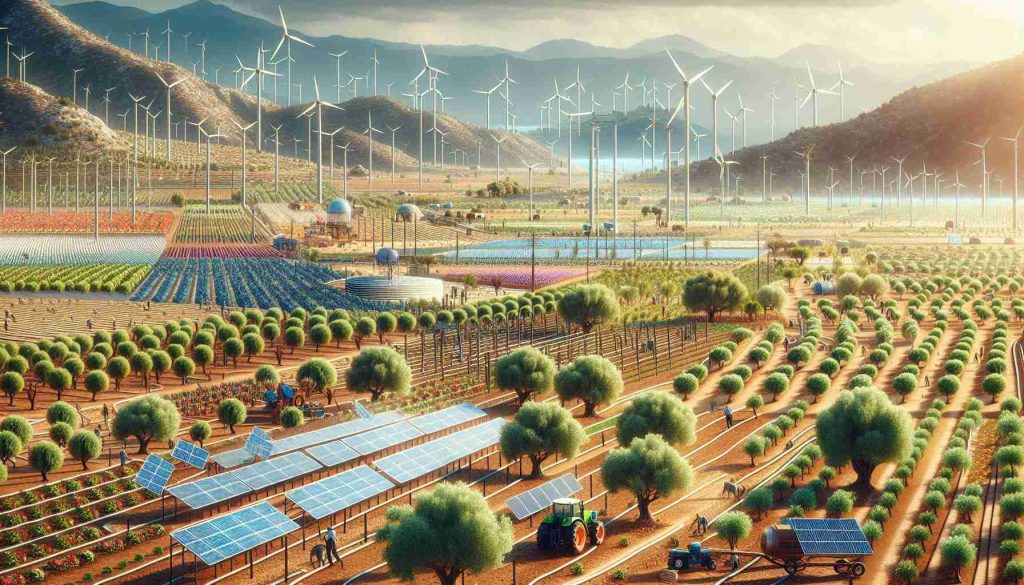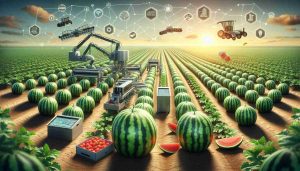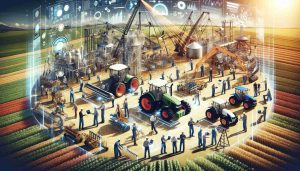Revolutionizing Greek Agriculture: Adapting to Climate Change
3 min read
Recent weather patterns in Greece have brought significant challenges to the agricultural sector. The traditional crops that have long been relied upon are now facing difficulties due to the last two dry winters. Despite this setback, a silver lining can be found in the adaptation of new crops that are proving to be resilient in the face of climate change.
Greek farmers have shown remarkable resilience and innovation by embracing new crops that are better suited to the changing climate conditions. These adaptive crops not only ensure a more stable yield but also contribute to the overall sustainability of agriculture in the region.
Through strategic planning and diversification of crops, Greek farmers are paving the way for a more sustainable and climate-resilient agricultural industry. By incorporating new techniques and crop varieties, they are not only mitigating the impact of climate change but also seizing new opportunities for growth and development.
With a forward-thinking approach and a willingness to adapt, Greek agriculture is undergoing a transformative period that promises a brighter and more resilient future. By embracing change and innovation, farmers in Greece are setting an example for sustainable agriculture practices in the face of evolving environmental challenges.
Expanding Agricultural Techniques in Greece for Climate Adaptation
Recent developments in Greek agriculture have underscored the pressing need for adaptation strategies in response to climate change. One of the key questions that arises in this context is: How can Greek farmers further enhance their resilience to changing climate patterns?
Key Questions:
1. What novel irrigation methods can Greek farmers adopt to mitigate the effects of droughts?
2. How can advancements in biotechnology aid the cultivation of climate-resilient crops?
3. Are there government initiatives in place to support farmers in transitioning to more sustainable agricultural practices?
4. What role do traditional farming practices play in the modernization of Greek agriculture under climate change conditions?
Answers:
1. Greek farmers can explore the implementation of precision irrigation systems that optimize water usage and reduce wastage, thereby combating the challenges posed by irregular rainfall patterns.
2. Biotechnological innovations such as genetically modified crops designed for drought tolerance or disease resistance can offer a potential solution to enhancing crop productivity in the face of climate uncertainties.
3. Government support in the form of subsidies for sustainable farming practices, infrastructure development for water management, and training programs for adopting climate-smart techniques can aid farmers in their transition.
4. The integration of traditional farming knowledge with modern technologies can offer a holistic approach towards sustainable agriculture, leveraging age-old practices for contemporary challenges.
Challenges and Controversies:
Despite the strides made in revolutionizing Greek agriculture, several challenges and controversies persist in the sector:
1. Acceptance and regulation of genetically modified organisms (GMOs) in agriculture raise debates on their safety, environmental impact, and ethical considerations.
2. Balancing the need for increased productivity with environmental sustainability remains a critical challenge for farmers and policymakers.
3. Adapting to new crop varieties and farming techniques requires significant investment in research, training, and infrastructure, posing financial barriers for small-scale farmers.
Advantages and Disadvantages:
– Advantages:
– Enhanced resilience to climate variability and extreme weather events.
– Diversification of crops leading to improved food security and economic stability.
– Promotion of sustainable land management practices for long-term environmental conservation.
– Disadvantages:
– Potential resistance from traditional farmers towards adopting unfamiliar crops or methods.
– Dependence on external factors such as market demand and policy support for successful agricultural transformation.
– Risk of unintended consequences from the widespread adoption of new technologies without comprehensive risk assessments.
In conclusion, the ongoing efforts to revolutionize Greek agriculture in response to climate change present both opportunities and challenges for the sector. By addressing key questions, navigating controversies, and weighing advantages against disadvantages, stakeholders can chart a sustainable path forward for agriculture in Greece.
For more information on climate-smart agriculture and innovative farming practices, visit Food and Agriculture Organization.
The source of the article is from the blog crasel.tk






